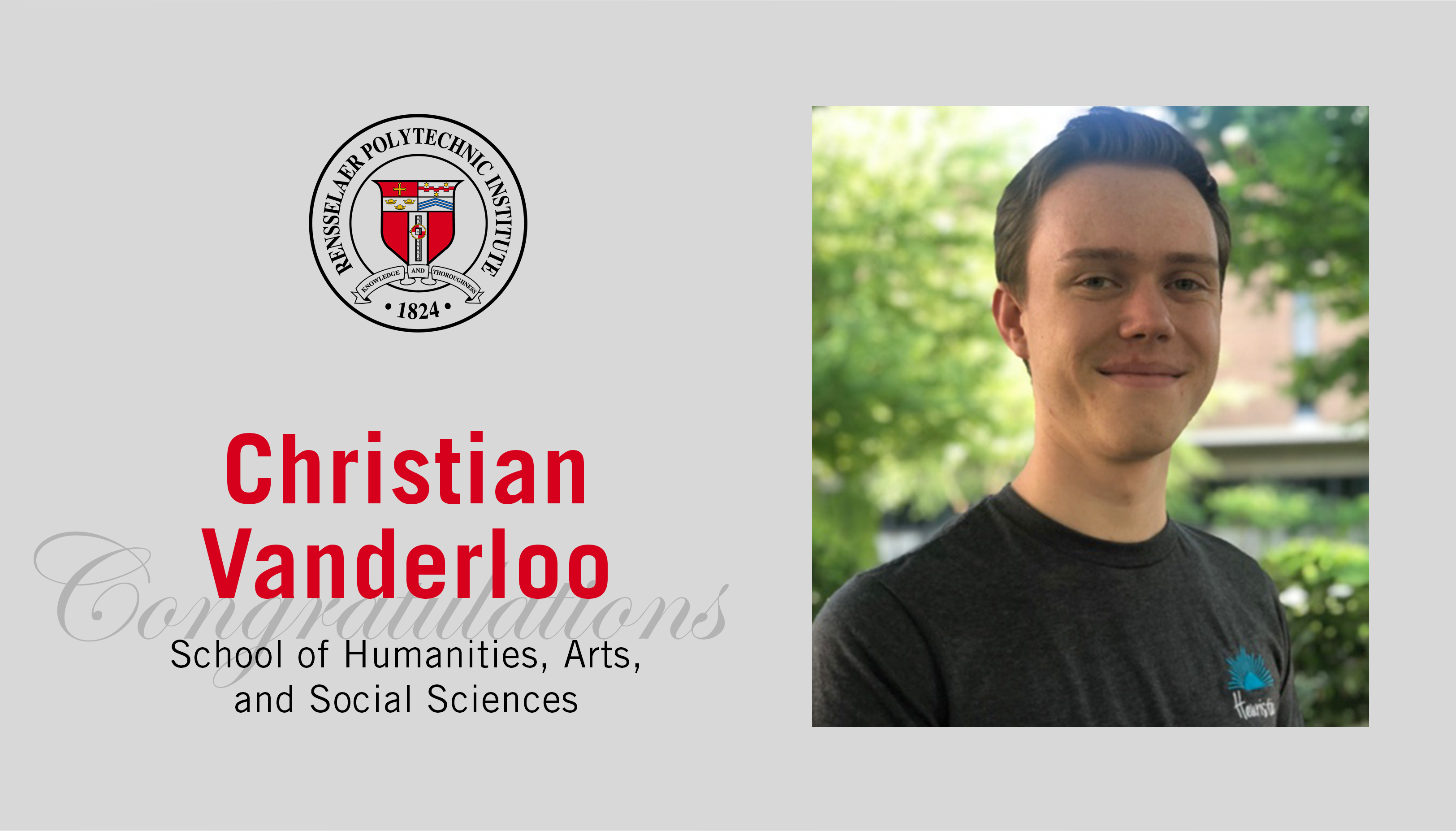Christian Vanderloo thought of himself as a “band nerd” in high school. Growing up outside of Cincinnati, and even after he moved to Philadelphia in his junior year, his world was centered around two things: music and computer science. Vanderloo designed his first website in fourth grade and then created his first iOS app in middle school.
One thing he certainly was not — at least, he didn’t think so — was fraternity material.
Vanderloo first considered applying to Rensselaer Polytechnic Institute because of the highly ranked computer science department and the small, idyllic campus setting. However, it was cognitive science program that ultimately sealed the deal for this student looking to “connect the why to the how.”
“Rensselaer is one of the few schools in the country that has a full-on cognitive science program,” Vanderloo said. “I’ve always liked the whole philosophy side to brain science, and I thought I might find cool avenues to explore.”
Vanderloo admits he entered college not really knowing how to study. His tendency to procrastinate was negatively impacting his performance, and he knew it. So, when four of his suitemates — all named Chris, as chance would have it — decided to rush the same fraternity, Phi Kappa Theta, he wasn’t sure it was a path he wanted to follow.
“I wasn’t the most outwardly social type of person,” Vanderloo said. “Doing anything with the fraternity seemed like it probably wouldn’t be for me and might negatively impact how I was doing in school. But I ended up rushing anyway, and I loved it. It has absolutely changed me as a person.”
Soon after Vanderloo joined the Greek system, he took on leadership roles that forced him to improve his time management skills. He was the fraternity’s IT chair in the fall of his sophomore year and philanthropy chair in the spring, leading events to raise money for charity and organizing teams to help clean up Frear Park. This outreach encouraged Vanderloo to take on roles with greater responsibility within the larger Greek system at Rensselaer. In 2019, he became the philanthropy chair of the Rensselaer Interfraternity Council, the local governing body for fraternity chapters on campus. In January 2020, he was elected president.
And then the COVID-19 pandemic changed everything.
Vanderloo had to figure out how to run the Greek system remotely. “It was a tough time for sure,” he said, “but I learned so much. Most of my time was spent interacting with the administration and managing everything at a high level.”
Through it all, Vanderloo also completed an internship at MIT Lincoln Laboratory in the counter-weapons of mass destruction systems department, working on computer programming and research into new AI applications.
Vanderloo credits his undergraduate success to the depth of his computer science education and the connections he formed with his cognitive science professors. “The ability to ask questions and learn directly from faculty is a real plus,” he said.
But, he credits Phi Kappa Theta for helping him become the person he is today. “The fact that Rensselaer has such a solid Greek life system allowed me to build a strong foundation on which to grow and look toward the future,” he said.
Vanderloo will graduate this May with a dual degree in computer science and cognitive science. This fall, he will shift into a full-time position at MIT Lincoln Laboratory while continue working on his co-term master’s in computer science, which he expects to complete in December.

